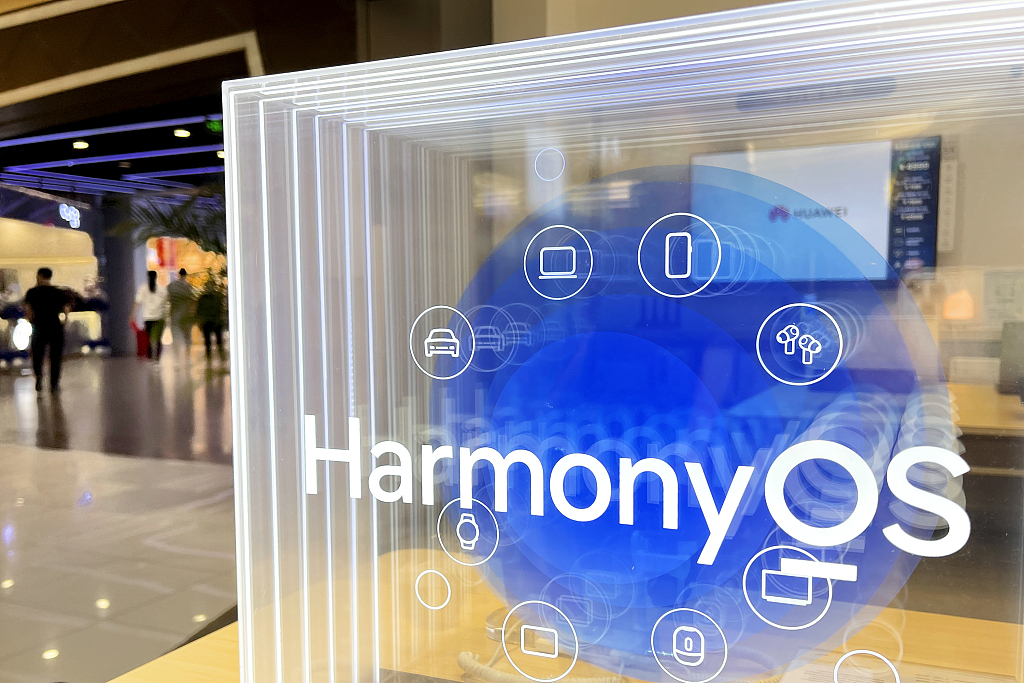New China-made operating system to offer an alternative
- By Tom Fowdy
 0 Comment(s)
0 Comment(s) Print
Print E-mail China.org.cn, June 9, 2021
E-mail China.org.cn, June 9, 2021

Last week, Huawei formally launched HarmonyOS, a new operating system that will become available to hundreds of millions of smartphones throughout the course of the year. The China-made operating system aims to replace Google's Android and follows Donald Trump's placement of Huawei on the U.S. Commerce Department's entity list in the summer of 2019, essentially denying it access to the operating system.
HarmonyOS is not designed to be a carbon copy of Google's leading smartphone system. Instead, Huawei calls the system "a next-generation operating system for smart devices" which "provides a common language for different kinds of devices to connect and collaborate, providing users with a more convenient, smooth, and secure experience."
It is not just designed for smartphones and tablets, but televisions, automobiles, and numerous other appliances, with the goal of combining "previously independent devices into a cohesive and holistic Super Device."
Many of course remain skeptical as to whether such a new system can penetrate a well-established market, not least owing to the comprehensive lull of "Google Play" services and its Apple partnership. While Huawei has been developing its own "Huawei Mobile Services" and "Huawei App Gallery," there undoubtedly remains a long way to go. However, this does not capture the scope of the company's ambitions, which are in reality far broader.
Facing the U.S.-led supply chain obstructions, which have sought to disrupt the flow of advanced chips to China, Huawei's founder and CEO Ren Zhengfei recently said that the company should re-establish itself by "daring to lead the world in software." This has nonetheless for some time been part of the company's strategy and which HarmonyOS is just one part of. The company has sought to establish itself in the field of cloud computing and artificial intelligence as well as expanded its range of business services.
This is not all talk. In China, HarmonyOS is already being put into practical business usage, revealing its advantages and flexibility. As reported by the Global Times, three major Chinese banks have signed up to use it, including the Bank of China, who will "cooperate with Huawei to launch the Atomic Services of banknote reservations"; China Guangfa Bank, which will integrate HarmonyOS into its own system; and China CITIC Bank who has "rolled out credit cards that support HarmonyOS to streamline application and payment processes." In addition, the report notes a Fujian-based open-source software company is aiming to integrate HarmonyOS with its new game engine.
In the wake of recent challenges, Huawei is reimagining itself and is striving towards new goals. The creation of HarmonyOS is undoubtedly a symbol of Chinese innovation, endurance, and perseverance in the face of external pressure. Despite having a long way to go, the operating system is not going to be a "flash in the pan" but will instead gradually place itself at the heart of China's own digital economy and likely provide an alternative for global consumers.
Tom Fowdy is a British political and international relations analyst and a graduate of Durham and Oxford universities. He writes on topics pertaining to China, the DPRK, Britain and the U.S. For more information please visit:
http://www.china.org.cn/opinion/TomFowdy.htm
Opinion articles reflect the views of their authors, not necessarily those of China.org.cn.
If you would like to contribute, please contact us at opinion@china.org.cn.






Go to Forum >>0 Comment(s)